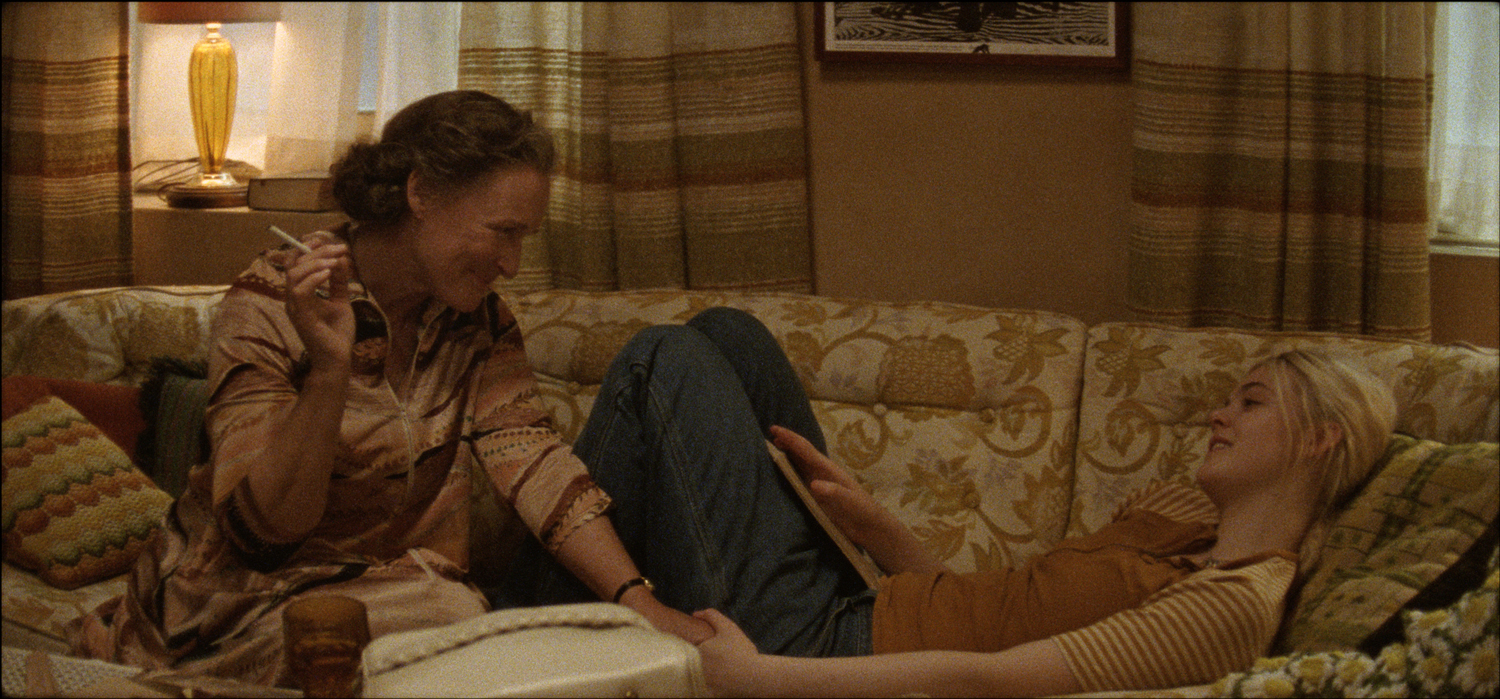Low Down
Opens Fri., Nov. 21 at Varsity. Rated R. 114 minutes.
Set in mid-’70s L.A., here’s a new movie made with the texture and technology of that era: grainy 16 mm film stock and vintage anamorphic lenses that gently flatten and widen the frame. First-time director Jeff Preiss is a veteran cinematographer with a knack for retro style (he shot Bruce Weber’s Let’s Get Lost and Broken Noses), and his pianist hero is a creature from another time. The cool glamour of West Coast bebop has faded by the ’70s for Joe Albany (John Hawkes); and if there was ever any money to his trade, that’s gone, too. He’s living in a seedy residential hotel with his teen daughter Amy-Jo (Elle Fanning, never treacly or plaintive), whose spiteful alcoholic mother (Lena Headey, from Game of Thrones) has long ago fled. When things turn bad for the pair—i.e., when Joe gets busted for heroin or breaking parole—his mother (a fine, flinty, dry-eyed Glenn Close) is there as a backstop for Amy-Jo. You get the sense that Gram, as she’s called, has seen worse.
The hardships and misadventures here feel ’70s-authentic and familiar, maybe too much so. Amy-Jo inevitably has her eyes opened to the world: There’s a hooker (Taryn Manning) living down the hall at the hotel with her young son; and a shy aesthete (Peter Dinklage) living in the basement shows Amy-Jo some kindness. This is a girl with an old soul, who’ll sit for hours listening to her father’s jazz records and jam sessions. (Here’s Flea, of the Red Hot Chili Peppers, as a trumpeter falling a little faster than Joe.) Her father is bound to disappoint her in this kind of movie, but the modest, poignant Low Down is based on the memoir by Amy-Jo Albany, who loved her father regardless. And Joe Albany was a genuine jazz cat of some small renown, who played with Charlie Parker and Lester Young. (He died in 1988.)
This gives Low Down an additional haunting verisimilitude, however episodic the writing. Also, Hawkes certainly looks the part—a pompadoured and oddly positive relic from the postwar Los Angeles of Bukowski and John Fante. He’s a gentle guy doomed not by smack but by the popular indifference to his art. Though, trying to be a good example, he refuses to be bitter about it. He tells Amy-Jo, “See, our luck is changing,” but absolutely no one here believes it.
bmiller@seattleweekly.com








